| All Artists: Cyril Scott, Martyn Brabbins, BBC Philharmonic Orchestra, Howard Shelley Title: Cyril Scott: Piano Concerto No. 1; Symphony No. 4; Early One Morning Members Wishing: 0 Total Copies: 0 Label: Chandos Original Release Date: 1/1/2006 Re-Release Date: 5/23/2006 Genre: Classical Styles: Chamber Music, Forms & Genres, Concertos, Historical Periods, Classical (c.1770-1830), Symphonies Number of Discs: 1 SwapaCD Credits: 1 UPC: 095115137628 |
Search - Cyril Scott, Martyn Brabbins, BBC Philharmonic Orchestra :: Cyril Scott: Piano Concerto No. 1; Symphony No. 4; Early One Morning
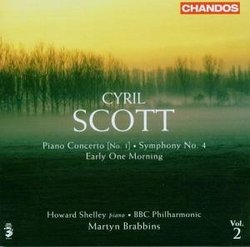 | Cyril Scott, Martyn Brabbins, BBC Philharmonic Orchestra Cyril Scott: Piano Concerto No. 1; Symphony No. 4; Early One Morning Genre: Classical
|
Larger Image |
CD DetailsSimilar CDsSimilarly Requested CDs
|
CD ReviewsA Breath of Bracing, Fresh Air minacciosa | Boston, MA | 04/19/2007 (5 out of 5 stars) "The review before neatly encapsulates the qualities of the 1st Piano Concerto. It IS thrilling. I found it easy to imagine the wonder that greeted the work at its first performance, as it really does inhabit another world of sound. It's a work that is sui generis. To his credit, Scott continued to grow and develop his compositional voice, which became even more personal and recognizable, if perhaps a bit less direct. It matters not, for once you're acclimated to his unique harmonic palette, nothing will seem strange. Early One Morning is a gem, and the most identifiably English work on the cd. The famous tune is here refracted rather than simply stated, cloaked in a similar idiom as the Piano Concerto. It's not quite a series of variations, more like a meditation on the meaning of the folksong's words, using the aspects of the tune as illumination. Trust me, you will smell the air and feel the wistfulness. Did I say this is soooo English? I just love it! The Symphony is line with Scott's somewhat more recondite mature style, which is to say that pure cadences and triadic progressions are not always clear. By no means is it atonal, but it is an interesting and original way of using tonality to reflect both traditional roots and a modern outlook. The symphony may not ever be an audience favorite but it is very rewarding listening for those who don't need music to be quite so obvious. The performances are all stellar, and this is all great stuff. Get it." Get this for the Piano Concerto Classic Music Lover | Maryland, USA | 03/04/2007 (5 out of 5 stars) "Cyril Scott's music inhabits a sound-world that is very much its own, despite the inevitable comparisons to composers such as Scriabin, Sorabji, and even the French impressionists. This new recording of the First Piano Concerto -- the first one in over 30 years -- takes a fresher, lighter approach that is absolutely thrilling in the outer movements. Messrs. Shelley and Brabbins really blow the cobwebs off this music, in stark constrast to the slow, overly heavy, even pompous Ogdon/Herrmann reading on Lyrita (just re-released on CD). That earlier recording gets fair dues if only because the producers were brave enough to record and release it back in the 1970s when it was surely out of fashion ... but this newer reading is truly revelatory. The Symphony is a world premiere -- and very welcome. The filler work "Early One Morning" isn't particularly memorable -- just as it wasn't in the earlier Ogdon recording on Lyrita." The very best of Cyril Scott, perfectly played Dr. Richard M. Price | London, UK | 06/07/2006 (5 out of 5 stars) "Almost forty years ago the New Oxford History of Music described Bax and Cyril Scott as the two English composers of their generation most in need of reassessment. Since then we have seen a flood of superlative Bax recordings, and for four years now (2008) it has been Scott's turn, with impressive recordings of piano music and chamber works on the Dutton label, and four CDs of his orchestral music from Chandos, with Martyns Brabbins and the BBC Philharmonic, of which this one, containing the two most attractive of Scott's concertos and the best of his symphonies, is the summit and crown.
The First Piano Concerto of 1914 was the highwater mark of Scott's early maturity, and has been the most often revived of his major works. It has his most magical slow movement, and outer movements that are vigorous, memorable, with brilliant piano writing (that is actually quite easy to play), and shamelessly sugary orchestration. The touch of vulgarity in harmony and instrumentation is welcome; Scott's taste became more refined thereafter, with more loss than gain. An impressive LP recording of this work with Ogdon, Bernard Herrmann and the LPO was issued by Lyrita thirty years ago. The LPO was superior to the BBC Philharmonic, particularly in the woodwind section, and the Lyrita recording was in a class of its own, but this new performance is just as affectionate and assured, and has the advantage of notably quicker tempi in the outer movements, where Ogdon's performance was self-indulgent and lost momentum. 'Early One Morning' is a short tone poem for piano and orchestra (1931). The Lyrita recording was quite magical, and this new one is just as good, with exquisitely sensitive phrasing. The work is slight in substance, but it sustains its rapt atmosphere most beautifully, and the orchestration is subtler than in the concerto. Up till the Second World War Scott's music had a distinctive personality (exotic, energetic, detached) but an idiom that was manifestly derived from Ravel and Grainger. In his old age, however, Scott created his own highly idiosyncratic language, marked by wayward melodies and a complex harmony, based on fourths and sevenths but with many added notes, in which every chord is an individual creation. Of this fascinating late style the Fourth Symphony of 1952 is an impressive example: one misses the lightness and charm of some of his other works of this period (such as the Flute Sonata) but the musical argument is coherent and symphonic seriousness is sustained -- much more so than in the suite-like Third Symphony included in the first of the Chandos issues. In all, this CD is unsurpassable as an introduction to Scott's music for larger forces, and contains in the Piano Concerto the most irresistible of all his works. " |

 Track Listings (8) - Disc #1
Track Listings (8) - Disc #1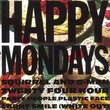

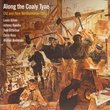
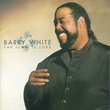
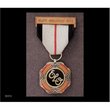

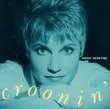
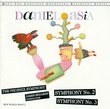
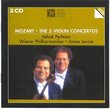
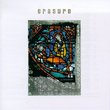

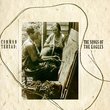

![Chapter I: A New Beginning [ENHANCED CD]](https://nationalbookswap.com/cd//m/51/3951/373951.jpg)